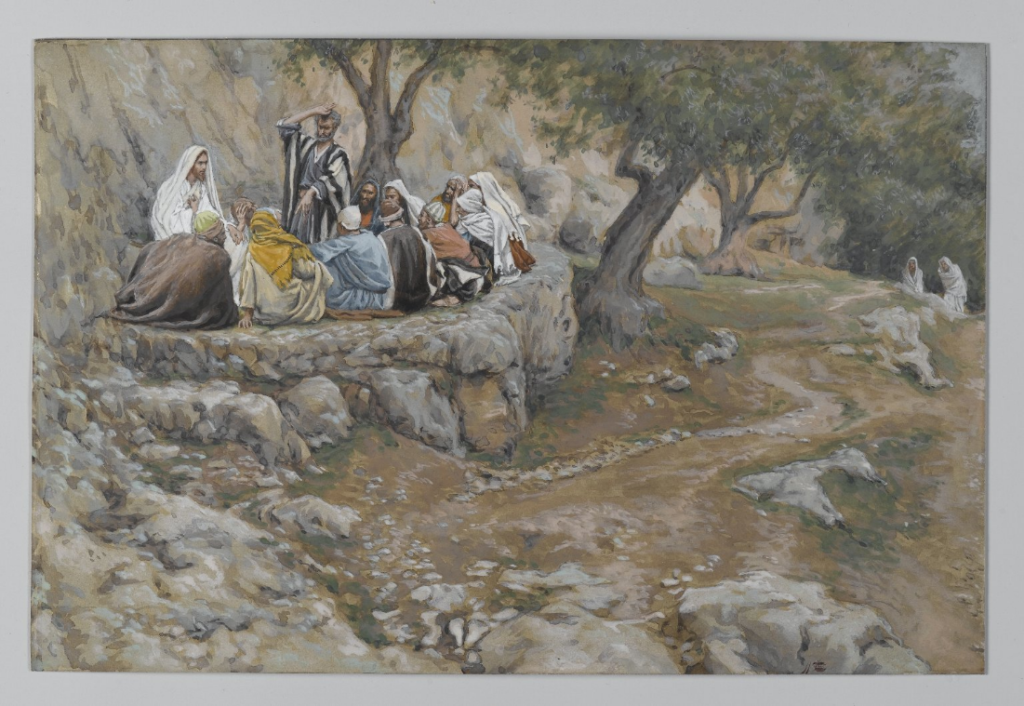Mt 16:13-20
Jesus went into the region of Caesarea Philippi and
he asked his disciples,
“Who do people say that the Son of Man is?”
They replied, “Some say John the Baptist, others Elijah,
still others Jeremiah or one of the prophets.”
He said to them, “But who do you say that I am?”
Simon Peter said in reply,
“You are the Christ, the Son of the living God.”
Jesus said to him in reply,
“Blessed are you, Simon son of Jonah.
For flesh and blood has not revealed this to you, but my heavenly Father.
And so I say to you, you are Peter,
and upon this rock I will build my church,
and the gates of the netherworld shall not prevail against it.
I will give you the keys to the kingdom of heaven.
Whatever you bind on earth shall be bound in heaven;
and whatever you loose on earth shall be loosed in heaven.”
Then he strictly ordered his disciples
to tell no one that he was the Christ.
BACKGROUNDER
Caesarea Philippi was a region where many other gods were honoured and worshipped. There was a cave which was thought to be a cave to the netherworld, Hades, the place of the dead. There very name of the place tells us that it was dedicated to the worship of the Roman emperor, the Caesar. Just by coming here, Jesus, raised as a humble carpenter, now a wandering teacher in Israel, proclaiming the coming of the kingdom of heaven, confronts the spiritual powers of the nations.
So Jesus’s question, which is about his identity, “Who am I?” is a question of loyalty. He is asking the disciples: here in Caesarea Philippi, who is in charge? Here the gods, death, and the emperor claim to be in charge. So two questions emerge: who do the people say that I am? Who do you say that I am?
A lot is at stake for the disciples. They are in a world where the power of God is distant, and may even seem absent. They will be sent into this world with a new proclamation: the God of Israel is in charge everywhere.
The disciples reflect on how the people are grappling to understand Jesus. The guesses about who Jesus truly is (“John the Baptist, others Elijah, still others Jeremiah or one of the prophets”) all circle around the question: “is the Messiah coming to bring about the Kingdom?” But Simon’s answer, that Jesus is the Christ, the Messiah, leads Jesus to acclaim him as the Rock, the literal meaning of the name, Peter.
Peter, and his successors, whom we call Popes, the Bishops of Rome, is granted not only a new name, but new powers. He will serve as the foundation of the church, the people called by God as his own; he will also have power over evil; and, he will be able to open the gates of heaven, because he will have the keys. This power is for all of God’s people, the church, but extends into the wider world, where people have loyalty to other gods and rulers.
But in the following verses (Matthew 16:21-22) Jesus will reveal shocking aspects of his identity. He will suffer and die, and then be raised from the dead. Peter will recoil saying, “God forbid, Lord! This shall never happen to you.” Jesus’s deepest identity remains hidden. They will have to learn that he is one with God, and that he is the saviour of the whole world, of all nations.

